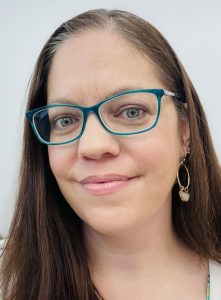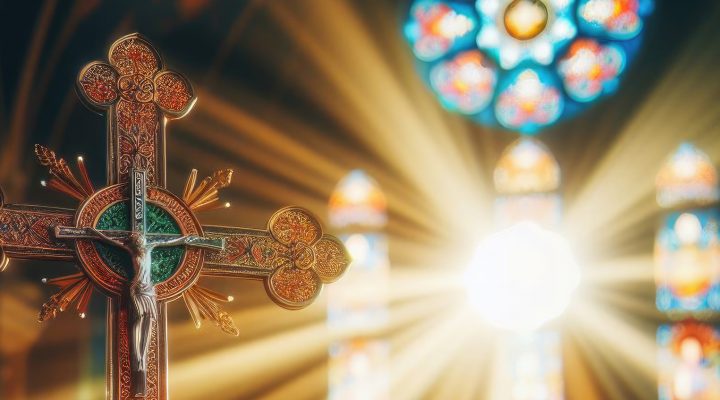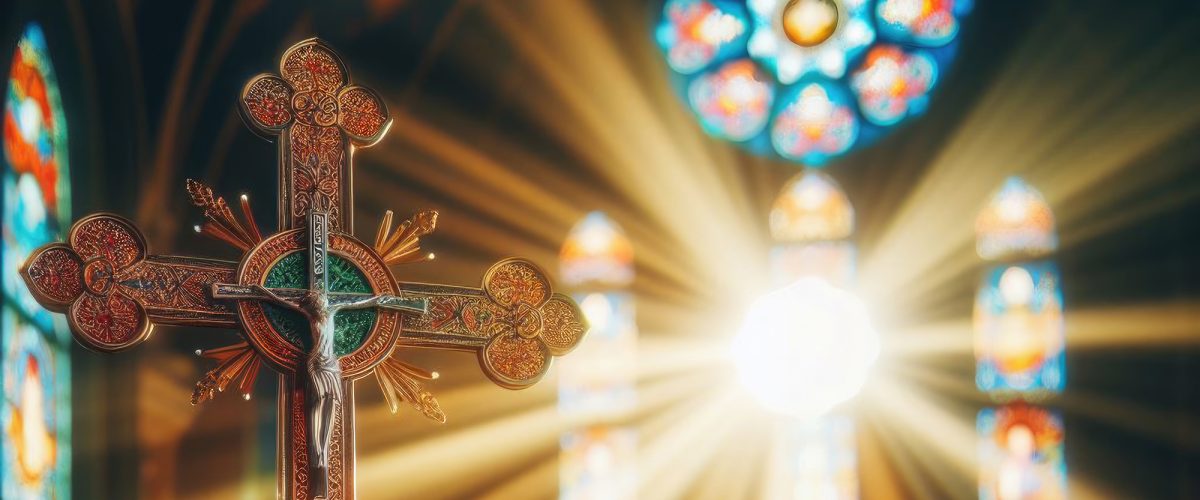From the time I was born until just a couple of years ago, I was a Southern Baptist to my core. I was baptized by immersion at a young age. I learned the Bible in Southern Baptist children’s ministries, GAs and Acteens. I earned one degree from a formerly Baptist liberal arts college and another from one of the most prestigious SBC seminaries in the country. I was ordained in and served as a pastor in Baptist churches for more than eight years.
I assumed that would be my identity forever.

Amy Brundle
However, after leaving my ministry position in 2021, I found myself at an odd crossroads. My husband and I struggled to find a Baptist church that was both conservative enough biblically for our standards, yet progressive enough to have a place for a female leader. Once it became obvious the Southern Baptist Convention was going to double down on its damaging and unloving stance on female pastors, I began to see the writing on the wall.
The denomination I had poured so much time, money and energy into no longer wanted me. It was time to look elsewhere.
We had not intended to look to the Anglicans.
But thanks to a gracious and persistent friend, we visited a mid-size Anglican church in midtown Raleigh, N.C. — Church of the Apostles. Automatically after stepping through the doors, I felt something I had not felt in other churches we had visited — a warm, welcoming spirit. The cozy familiarity of a thriving church going through its motions, loving God and loving people without making it a performance. And two years later, I still have the same feelings walking through the doors of the church we now call home.
I was thrilled to find many Anglican churches not only allowed but encouraged female leadership in worship. But most of them worship in ways I never had experienced before. I had studied liturgy in seminary, but practicing it every week was a new discipline for me. I had to become accustomed to the pastors wearing collars, taking communion weekly (with real wine!), and the stand-sit-kneel rhythms of a typical service. The Baptist in me was initially uncomfortable and awkward with this new way of worshiping.
“We join a tradition of worship that has been in place for hundreds of years, tying us together with generations of saints that have gone on before.”
However, over time, as I learned the liturgy, I began to understand its place and its timeliness. Through the liturgy recited week after week by more “high-church” denominations, we receive a reminder of the entire redemption story, through teaching and Scripture, then confession of faith, then confession of sin, then receiving the peace, and finally coming to the Lord’s table. In using formalized prayers and recitations like those in the Book of Common Prayer, we join a tradition of worship that has been in place for hundreds of years, tying us together with generations of saints that have gone on before.
Here are a few takeaways from my experience that could be beneficial for all of us to remember:
There is room in the kingdom of God for different elements of worship. I believe Christians have a tendency to decide our own preferred method of worship is the definitive way, and we make “dealbreakers” out of elements of worship that don’t have to be. Obviously, we want to remain faithful to Scripture, but diverse forms of worship are beautiful and should be celebrated.
If I had not been willing to step outside my comfortable Baptist box, I would not have learned how powerful it can be to have an entire room of people reciting the Nicene Creed in unison. We should let preferences remain preferences and occasionally check out a different way of worship for new perspective.
There is benefit to repetition. Liturgical denominations tend to repeat the same prayers or homilies before elements of the service. I’ve heard arguments that doing so makes the words too rote to be meaningful for the congregation. However, there is real benefit in repetition.
“Sometimes repeating words of truth that are familiar can cover you when you don’t have the emotional energy to express those truths yourself.”
Sometimes repeating words of truth that are familiar can cover you when you don’t have the emotional energy to express those truths yourself. I was hurting spiritually when I came to Apostles, and I didn’t always have the faith to be spontaneous with my praise to the Lord. Having a set prayer and truths to recite can allow us to still worship even when I was emotionally depleted.
There is beauty in any church that teaches Christ and loves people. Every church, no matter how their worship looks, is part of the bride of Christ if they teach his salvation and care for his people.
I’m proud to attend a church that is purposeful about its worship, its discipleship and its fellowship. All the small trappings I had to get used to paled in comparison to the truth and love being taught and practiced by the congregation.
People like me who were born and raised in Baptist ways of worshiping can learn so much from experiencing other traditions. Primarily, learning how to worship outside our own comfort zones helps us remember our way isn’t the only way.
The kingdom of God is much larger than we could possibly imagine and encompasses so many types of people worshiping in myriad ways around the globe. If we close our minds to other traditions of worship, we lose sight of the universality of the gospel.
Long story short, we’re happy in our new Anglican setting. I’ve already found ways to serve and have made strong friendships. I may not have expected this to be where we landed, but God has used this experience to enrich my understanding of the kingdom’s vastness and diversity.
So although I may never gesture the sign of the cross before a meal, or fully get used to the idea of infant baptism, I belong to a church that loves Jesus and loves me. Thanks be to God.
Amy Brundle is an ordained Baptist music minister living in Raleigh, N.C., with her husband, Scott, and a spoiled cat, Brandy. She also is the marketing and communications manager for NAMI North Carolina, a mental health awareness and advocacy nonprofit organization. She holds a master of divinity degree from Southeastern Baptist Theological Seminary and has been studying music nearly 35 years. Her passions include inspiring volunteers to grow as worship leaders and increasing mental health advocacy within the local church.


